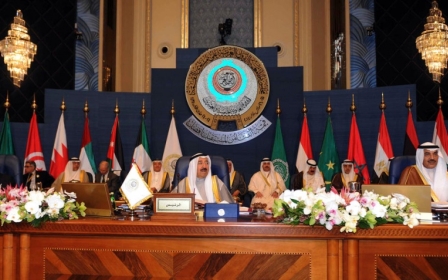Israel demolishes Bedouin village for the 68th time

The Bedouin village of Al-Araqib in the Negev desert has been demolished by Israeli bulldozers for the 68th time.
Speaking to the Anadolu news agency, Awad Abu Frieh, a spokesman for the families of the village said, "A large number of army and police forces stormed into the village and levelled 10 homes to the ground. The occupation force had not allowed the owners of the destroyed homes to take their belongings from the rubble, leaving them in the open air for the 68th time.”
He said that Israeli bulldozers had also destroyed eight homes in different areas in the Negev Desert, describing the event as a "massacre of Palestinian presence" in the desert.
There are around 35 Bedouin villages in the Negev desert, housing around 90,000 people which are not legally recognised by the state of Israel. In total the desert is home to around 220,000 Bedouin Arabs, half of whom live in villages. Bedouin communities have lived nomadically in the region since before the founding of the State of Israel in 1948.
Tensions in the Negev have been high since the Knesset announced a new plan for development in the desert in 2012. The Bill on the Arrangement of Bedouin Settlement in the Negev – known colloquially as the Prawer Plan – is a five-year economic development plan for the Negev desert, which involves the resettlement of as many as 70,000 Negev Bedouin into new government-approved local councils.
While the Israeli government has claimed that the development will benefit the Bedouin population living in the Negev, critics have called the move a form of ethnic cleansing.
The UN Committee on the Elimination of Racial Discrimination has condemned the Prawer Plan saying it would “legalize the ongoing policy of demolitions and forced displacement of the indigenous Bedouin communities” and it expressed concern about “the current situation of Bedouin communities, particularly with regard to the policy of demolitions, notably of homes and other structures, and the increasing difficulties faced by members of these communities in gaining access on a basis of equality with Jewish inhabitants to land, housing, education, employment and public health.”
The Prawer Plan was put on halt in December 2013 after a huge international outcry and the revelation that government planners had not consulted with Bedouin leaders on the proposals. Benny Begin, one of the architects of the plan, dismissed the criticism as political hysteria. “Right, left, Arabs and Jews joined hands – while exploiting the plight of many Bedouin – to heat things up for political gain. We've done our best, but sometimes you need to recognize reality.”
Agricultural minister Yair Shamir – son of former prime minister Yitzhak Shamir – has taken over the management of the project and it is thought the bill could return to the Knesset as early as May 2014.
Middle East Eye propose une couverture et une analyse indépendantes et incomparables du Moyen-Orient, de l’Afrique du Nord et d’autres régions du monde. Pour en savoir plus sur la reprise de ce contenu et les frais qui s’appliquent, veuillez remplir ce formulaire [en anglais]. Pour en savoir plus sur MEE, cliquez ici [en anglais].




